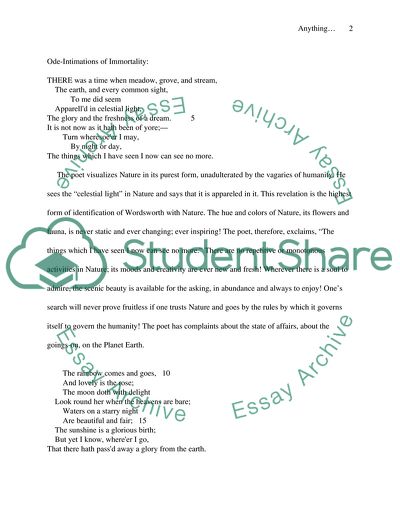Cite this document
(Anything goes Ode: Intimations of Mortality-William Wordsworth Book Report/Review, n.d.)
Anything goes Ode: Intimations of Mortality-William Wordsworth Book Report/Review. https://studentshare.org/literature/1727192-anything-goes
Anything goes Ode: Intimations of Mortality-William Wordsworth Book Report/Review. https://studentshare.org/literature/1727192-anything-goes
(Anything Goes Ode: Intimations of Mortality-William Wordsworth Book Report/Review)
Anything Goes Ode: Intimations of Mortality-William Wordsworth Book Report/Review. https://studentshare.org/literature/1727192-anything-goes.
Anything Goes Ode: Intimations of Mortality-William Wordsworth Book Report/Review. https://studentshare.org/literature/1727192-anything-goes.
“Anything Goes Ode: Intimations of Mortality-William Wordsworth Book Report/Review”. https://studentshare.org/literature/1727192-anything-goes.


